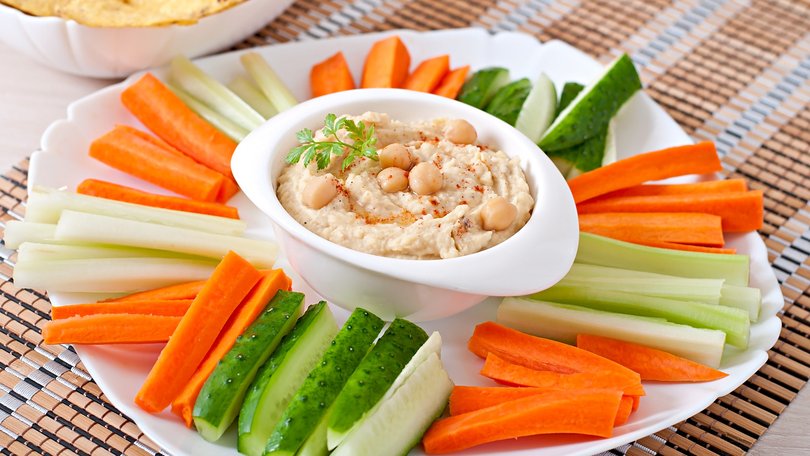Nutritionist Sarah Di Lorenzo: Beat those 80s-style eating habits by snacking smarter
Nutritionist Sarah Di Lorenzo asks do we actually need to snack or is three meals a day better?

Snacks — do we actually need to snack or is three meals a day better?
Prior to the 1980s people didn’t snack and they appeared to be slimmer and healthier, so should we go back to this way of eating? What are the best kinds of snacks?
Since 1980 we have seen a sharp rise in snacking. Prior to that people had three meals a day and this really started to take shape around the start of the industrial revolution.
Sign up to The Nightly's newsletters.
Get the first look at the digital newspaper, curated daily stories and breaking headlines delivered to your inbox.
By continuing you agree to our Terms and Privacy Policy.Children, as well as adults, historically did not snack.
What we do see as a correlation of this pattern is that prior to snacking there were lower rates of obesity and metabolic diseases. The food choices back then were mostly home-cooked meals and less processed foods compared to our now snacking centric culture.
If you look back at the history of snacking what you find is that if there were snacks, they were really treats occasionally such as fruit, cheese or crackers, and for children mostly after school.
Snacking was historically discouraged because snacking was thought to spoil the appetite and increase cavities.
With the rise of convenience foods and marketing we start to see the shift. Lifestyle changes such as women working, reduced time to meal prep and the changes in school lunch boxes contributed to the snacking boom from the 1980s.
With the rise of convenience foods people started to graze more during the day. The grazing choices were more often calorie dense processed foods like biscuits, chips and sweets rather than whole foods.
The shift in snacking came in parallel to increases in weight and obesity, therefore raising questions about snacking and its possible health impacts.
The research suggests that three meals a day is enough for adults and limiting snacking helps with managing blood glucose and weight. It’s what people are snacking on that is the problem and is linked to type 2 diabetes, metabolic syndrome and obesity. The focus with snacking should be on minimally processed whole real foods.
Snacking can be beneficial when meals are spaced widely apart or physical activity is high, but another benefit of snacking is curbing hunger and it can also be beneficial for preventing overeating.
But frequent snacking on processed foods means a much poorer diet quality, with constant blood sugar spikes and lows creating somewhat of a constant craving and reliance on sugary sweet foods.
Research shows that with intermittent fasting and spaced meal timing there are metabolic benefits that include lower body mass index, improved insulin sensitivity and better health outcomes in some.
So should we go back to pre-1980s style where people were healthier? A time where people ate a lot more home-prepared foods and only three meals a day with a much greater nutrient density, supporting digestive health, bigger intervals between meals, insulin not constantly being stimulated and eating more mindfully? Or should we improve our snacking and be more mindful?

In my professional opinion I have seen a lot of benefits in snacking, but that is mindful snacking with mostly whole real foods. For starters, it is a great way to make sure people are getting their fruit intake daily. Fruit is an amazing snack that is not only extremely convenient but also often comes in its own packaging, such as an apple or banana.
Snacking is also an excellent way to make sure people are eating nuts daily which have so many health benefits. Smart snacking can also help people with the 4pm slump, when people seem to have the most “food noise” and tend to make the worst food choices.
Smart snacking can also keep your portions true at meal time and prevent overeating.
I believe the benefits of smart snacking can outweigh the traditional three meals a day. Preparation is the key to avoiding poor food impulse choices.
Other excellent snacks include cheese and pickles, hummus and vegetable sticks, Greek yoghurt, apples and peanut butter, boiled eggs, edamame and the occasional processed snack can be convenient, such as a good quality protein bar. The key is portion control, good quality, nutrient density that can really help regulate appetite.
The takeaway is if you choose to snack then be wise about it and when needed. Avoid all the ultra-processed sugary or salty snacks for good health and wellness.

